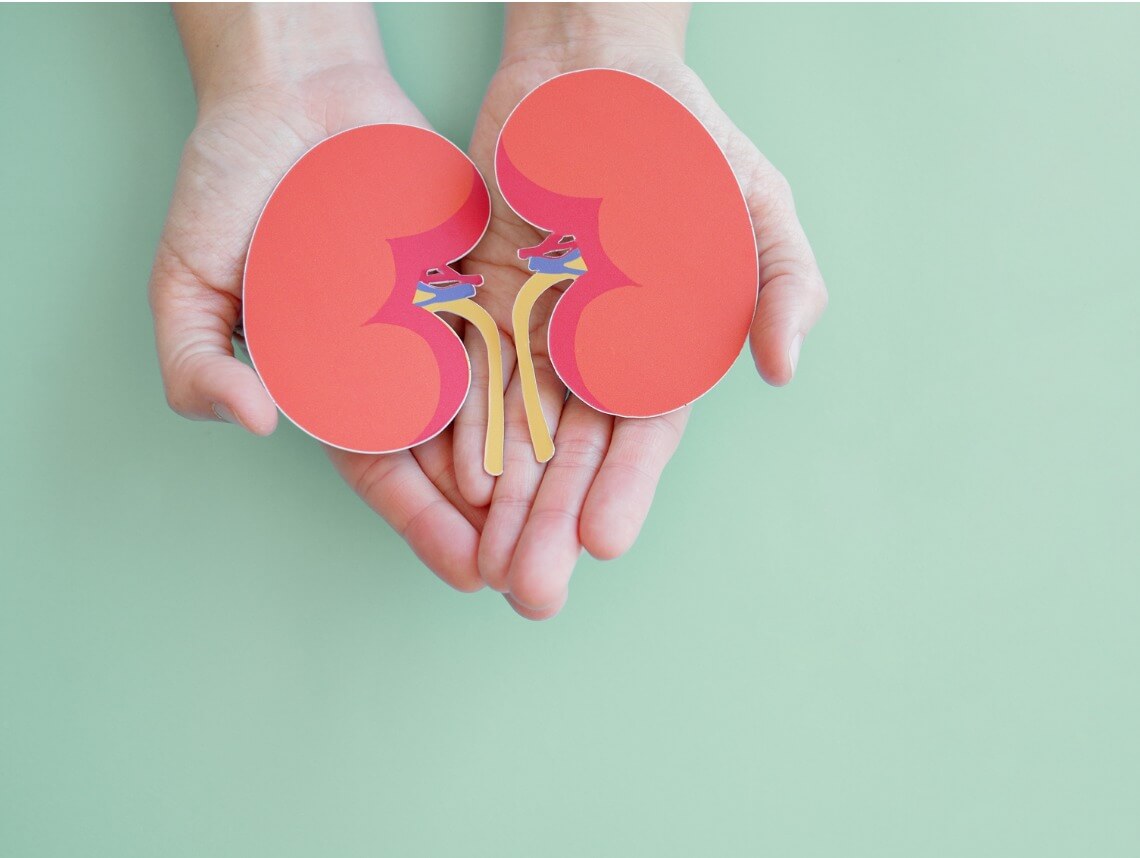As a parent we understand it can be distressing to learn about your child having a birth defect. It’s natural to have questions about the causes and what treatment options are available. A diagnosis of Ectopic kidney can cause some symptoms and complication risk, in many cases, an ectopic kidney is highly manageable and causes minimal long-term issues.
By learning more about this condition, including the causes, symptoms, treatments, and care needs, you can proactively manage your child’s ectopic kidney diagnosis and achieve the best outcome for your family.
What is an Ectopic Kidney?
Sometimes called a pelvic kidney, an ectopic kidney describes a kidney that is not in its normal position in the body. The body typically has two kidneys just beneath the rib cage on either side of the spine. The kidneys sit at the beginning of the urinary tract, filtering waste materials and toxins out of the blood to change into urine.
With an ectopic kidney, one of the kidneys will often either be lower in the pelvis or abdomen, on the same side as the other kidney, or in rare cases, move too high. Ectopic kidney usually only affects one of the kidneys. It is estimated that about one 1 in every 1,000 people has this condition, although many cases go undiagnosed.
Ectopic Kidney Causes
During fetal development, the kidneys start as small buds in the pelvis and travel up to their normal position during the first eight weeks of life. An ectopic kidney happens if one of the kidneys doesn’t move, stops moving too early, or travels too far or in the wrong direction. Doctors don’t fully understand why this occurs in some people, but it is likely related to genetic and environmental factors.
Ectopic Kidney Symptoms
In many cases, an ectopic kidney may not cause any problems or have noticeable symptoms. Most cases often go undiagnosed or are not detected until later in life due to an unrelated diagnosis.
If an ectopic kidney is disrupting normal kidney function and urinary flow, symptoms may include:
- Pain in the abdominal region or back
- Frequent urination
- High blood pressure
- A noticeable lump in the abdomen or pelvis
Ectopic Kidney Complications
An ectopic kidney can increase the chances of certain complications in the kidney and urinary tract, including:
- Kidney infections
- Urinary tract infections (UTI)
- Kidney stones
- Backed-up urine, or Vesicoureteral Reflux (VUR)
Serious symptoms such as fever, painful urination, or blood in the urine are common signs of these complications and require immediate medical attention.
Diagnosing Ectopic Kidney
In some cases, ectopic kidney may show up on a prenatal ultrasound. Often it is discovered during diagnosis for a different condition or if there are recurring kidney infections or UTIs. Diagnostic steps for ectopic kidney include:
- Review of medical history and family medical history
- Physical examination
- Urinary tract imaging tests
- Urine and blood analysis
- Imaging tests, including X-ray and MRI
Ectopic Kidney Treatment Options
Ectopic kidney may not require treatment if there is no dysfunction or symptoms. However, if the condition is causing complications including recurring infections or urinary problems, surgery may be recommended to move the kidney or other parts of the urinary tract.
Caring for a Child with Ectopic Kidney
There can be a wide range of care required to meet the needs of children with an ectopic kidney. In some situations, children may need a little extra care to ensure they maintain healthy kidney’s through hydration and a healthy diet. Other children may require more frequent appointments to monitor the condition.
If kidney surgery is needed, children will need increased care during recovery. In all cases, taking steps to prevent a UTI, including practicing good urinary and general hygiene can help. Even when they present challenges, families dealing with a child with an ectopic kidney are very often able to develop an effective treatment and care strategy for their unique diagnosis.
In many situations, families benefit from the assistance of pediatric home health services. A qualified pediatric RN or LPN can help with nutrition, administering medication, assisting with rehab exercises, and even accompanying children to appointments. Care plans can be custom-tailored to suit any family situation or need to ensure the best possible quality of life for everyone.
Contact Care Options for Kids For Pediatric Home Health Care
It can be hard to balance your time between work, home, and caring for a child. That’s why our team of skilled professionals at Care Options for Kids is here to help.
Our home health care services offer support in the comfort of your home. We refer loving and competent nurses to provide customized care for families — from a few hours a day to around-the-clock supervision. Contact us directly to speak with a home health care professional or request a free in-home assessment. Together we can determine the best plan of action to keep your loved ones happy and healthy.
If you are considering pediatric home health care services, contact the caring staff at Care Options for Kids. Call today at (888) 592-5855.






